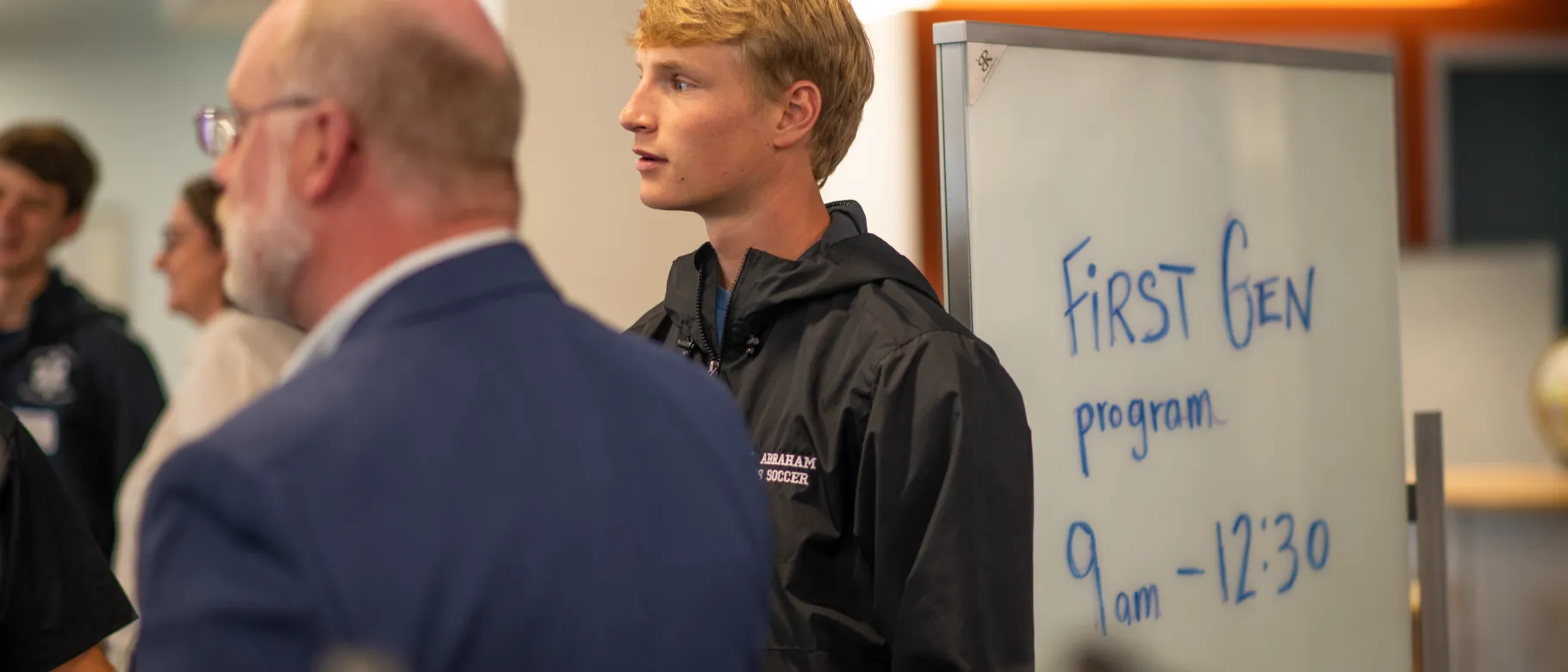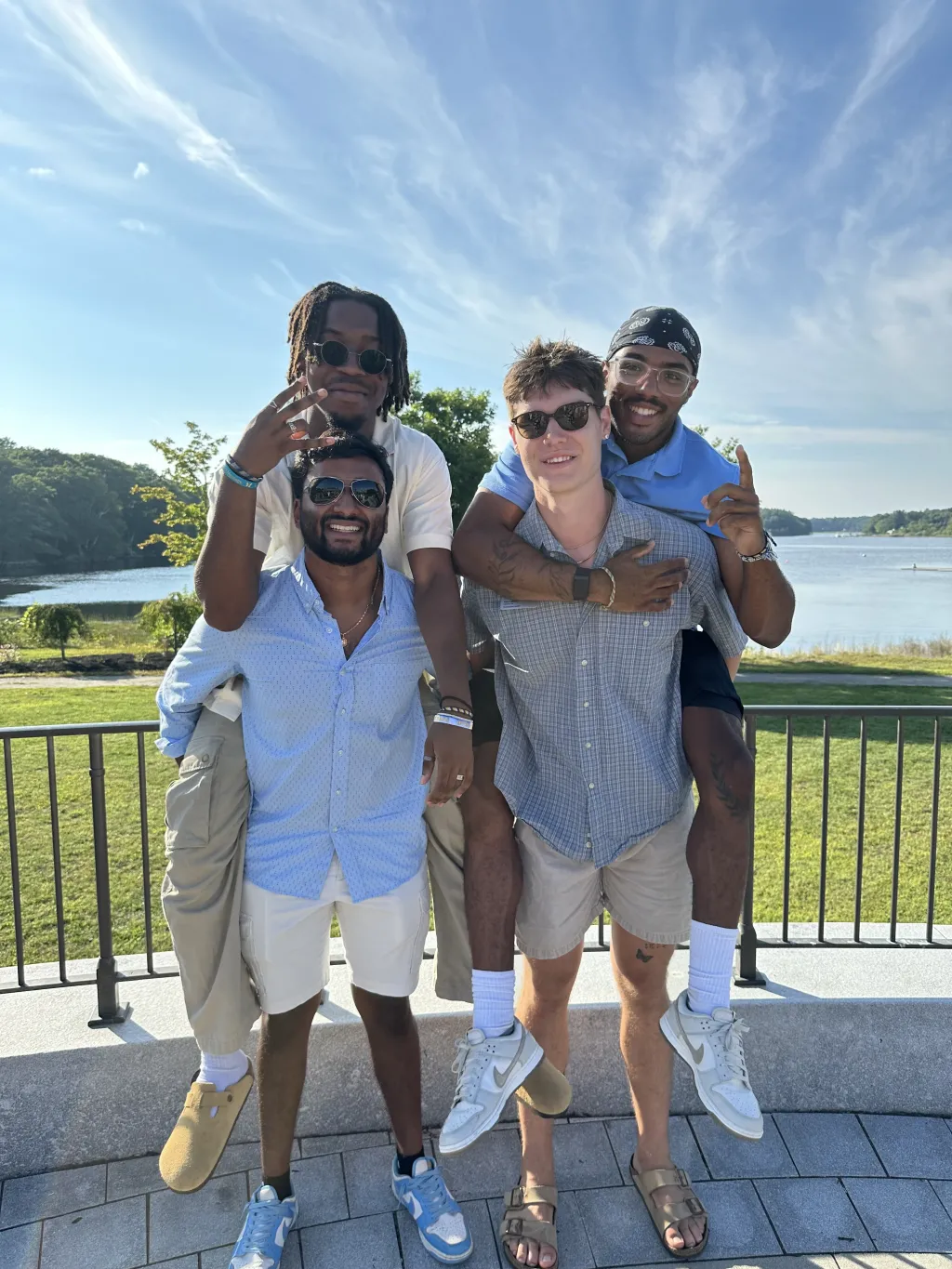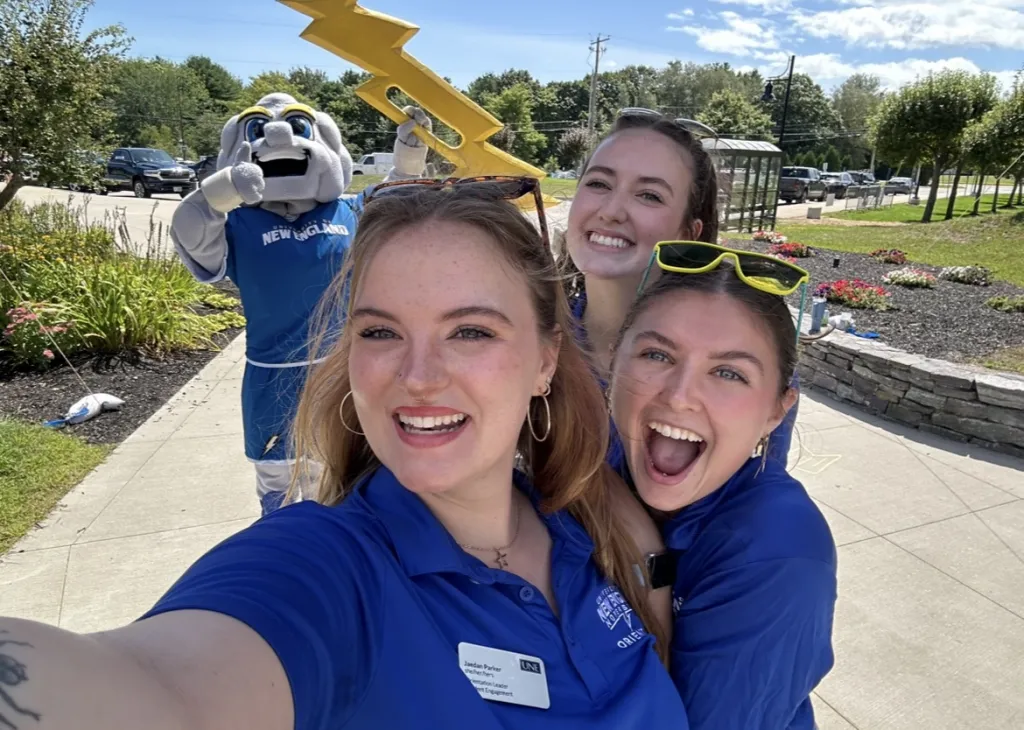First-gen college students find community, academic success at UNE

For Dan Hargrove, going to college wasn’t just a choice — it was a clear path shaped in part by the experiences of his cousin, who attended the University of New England a few years before him.
As a first-generation college student, his questions were less about if he would go and more about who he would become, how he would change, and what challenges he would face.
“I definitely felt like it was expected of me to go to college,” said Hargrove (’27), adding that throughout school he was being prepared for his next academic steps. “Once I realized what I wanted to do as a career, it became clear that college was my next step to becoming an athletic trainer.”
Hargrove’s motivation to pursue higher education came from many sources. A particularly inspiring high school science teacher and a lifelong passion for sports led him to combine these interests into UNE’s Athletic Training 3+2 Program. Add to that his competitive spirit and the influence of peers heading to prestigious institutions like Yale and Harvard, Hargrove knew exactly where he wanted to be after graduation – at UNE.
With each incoming class at UNE, first-generation students like Hargrove make up over 30% of the undergraduate population — a point of pride for the university, said Eric Drown, Ph.D., assistant director of the Student Academic Success Center, who is also a first-generation student himself.
Over the years, the First-Gen Bridge Program, initially built on humble beginnings has evolved into a well-oiled machine, thanks to the efforts of current students, faculty, and professional staff. Any doubts incoming first-gen students may have about finding a community here are quickly put to rest, Drown said.
“Our first-generation programming tries to do a couple things that I think are really important,” he said, adding that he has been involved with the program since its inception. The program was designed to help students adjust to life at UNE through participation in a variety of academic, social, and personal development workshops.
“We really want to celebrate and highlight the strengths that students bring with them and introduce them to hidden curriculum-like expectations and the culture of the university that's not visible,” he said.
In addition to programming designed specifically for first-generation college students, many members of UNE’s leadership team are first-generation college goers themselves, including the University president, dean of students, and the director of the Student Academic Success Center.
While first-generation college students may need a little bit of assistance to launch themselves during the first two or three weeks of the semester, Drown said that first-gen students take off and are integrated with the rest of the student population.
“By meeting other first-generation students and then seeing the mobility and the promise of the future through the adults who are in the room with them, that seems to make enough difference to really sustain them,” he added.
Jaedan Parker (Biological Sciences, 2026) found herself on a similar path to Hargrove.
Growing up on the North Shore of Massachusetts with a single mother, whom she credits with instilling a strong work ethic, Parker always knew she was destined for higher education.
“Life was challenging for her because she didn't go to college,” Parker said of her mother. “I didn’t feel pressure from her, but I know there were a lot of things that she shielded me from growing up. So her encouragement comes from a place of her not wanting me to get into situations she found herself in.”
Once a first-generation student is accepted into UNE, they are welcomed by a dedicated team committed to helping them navigate their new lives with minimal obstacles. The First-Gen Bridge program reimagines the typical college orientation, allowing students to move in early and participate in activities designed specifically for them. These include workshops on understanding the college academic environment, setting goals for a successful first year, connecting with key faculty and staff, and—perhaps most importantly—building connections with fellow first-generation students.
“College can be scary for anyone, but especially for first-generation students who might not have a good idea of what they should expect,” Parker said. “The First-Gen Bridge Program helped me understand exactly what I was walking into and provided resources that gave me an extra leg up. I felt very confident knowing I had a supportive network here on campus as well as my family back home.”
Both Hargrove and Parker quickly settled into life at UNE, embracing new challenges and changes while leaning on their support networks when needed. For Hargrove, his biggest challenge came during the spring semester of his freshman year.
“The first semester of my freshman year went almost as perfect as I could have imagined it,” said Hargrove, adding that in the second semester his father passed away. “That was the hardest thing for me because it changed my life in more ways than one.
“But coming back to UNE… everyone, from friends to faculty to staff, was super helpful and so kind. That spring semester ended up being my best semester academically that year thanks to their support.”
He specifically credits connecting with a student group on campus.
“There wasn't always an outlet for me to be emotional and process (my dad’s passing). I was very fortunate to connect with students through Cru at UNE. Those are a few things where I feel most at peace with myself,” he said
At UNE, Parker said she found opportunities to step out of her comfort zone, explore new things, and still make time to check in with herself.
“It took me a while to settle,” said Parker “I’ve surrounded myself with people who love and support me. I feel my most authentic self when I'm sitting with a whole bunch of other people and we're laughing and we're telling stories and I'm like, ‘these people are so weird.’ But it's awesome because so am I. I feel like I don't have to hide anything about myself.”

Hargrove with friends on the Biddeford Campus.

Parker during UNE’s Fall Orientation.